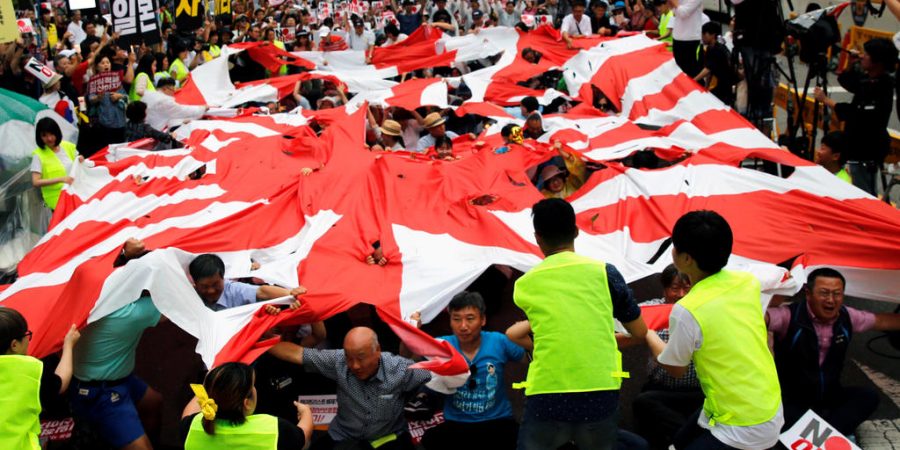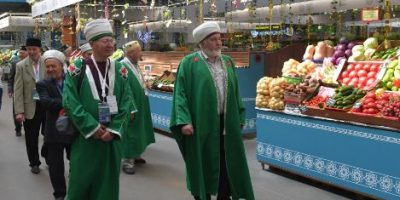South Korea looks to Asean for help in its ‘trade war’ with Japan

HONG KONG, (DNA) — South Korea is planning to appeal for help from its regional partners in its latest bid to convince Japan to roll back export restrictions amid an escalating trade dispute between the two countries.
At a series of ministerial gatherings among representatives of Japan, South Korea and the 10-member Association of Southeast Asian Nations (Asean) set to take place in Bangkok next week, South Korean Foreign Minister Kang Kyung-wha will stress “the importance of free and fair trade”, her office told journalists on Thursday (July 25).
Japan slapped new restrictions on hi-tech exports used in South Korea’s semiconductor and electronic-display industries earlier this month, citing “inadequate management” of materials, which could be used to make weapons.
But Seoul labelled the move a “retaliation” for South Korean court rulings ordering Japanese companies to compensate victims of wartime forced labour.
“South Korea’s strategy stressing the importance of free trade in the face of Japan’s trade restrictions nicely fits in with the ‘Asean spirit’, particularly at a time when the association is emphasising the free trade principle all the more because it is suffering from the ongoing US-China trade dispute”, said Mr Choi Yoon-jung, a research fellow in the department of diplomatic strategy studies at South Korea’s Sejong Institute.
“No one would object to the principle of rules-based free trade, and the lack of any objection to South Korea propagating the benefits of free trade at Asean’s meetings would send an implicit message to Japan in South Korea’s favour.”
Relations between the two sides have become increasingly strained since South Korea’s top court last year ordered a Japanese steelmaker to pay compensation to victims of forced labour, stemming from Japan’s colonisation of the Korean peninsula during the second world war.
The subsequent trade dispute, which comes amid the ongoing trade war between the US and China, has economists sounding the alarm about disruption among technology supply chains and knock-on effects for the global economy.
The two nations locked horns over the matter at a meeting of the World Trade Organisation earlier this week, with South Korean officials and lawmakers also visiting Washington in attempt to drum up support.
US officials and members of Congress have shared their concerns over the possible impact on global trade from Japan’s actions but reportedly appeared “hesitant” to weigh in.
Mr Bong Young-sik, of the Yonsei University Institute for North Korean Studies in Seoul, said it was unlikely that Asean members or the US would intervene unless the dispute began to directly damaged their own economic interests.
“The important thing is handling the aftermath of the South Korean court rulings on forced labour,” said Mr Bong, describing this as the “root cause” of the trade dispute.
Seoul is now bracing for more export curbs as Tokyo moves to remove South Korea from its “white list” of trusted trade partners and impose new customs clearance restrictions on 40 categories of products, affecting 1,100 specific items.
The government of liberal South Korean President Moon Jae-in will feel pressure to come up with a compromise ahead of crucial parliamentary elections next April if growing damage to the economy becomes unbearable, said Mr Bong, of Yonsei University.
Related News

The largest halal fair in Russia will open on 14 MAY
ISLAMABAD, /DNA/ – More than 40 thousand visitors and 4.5 thousand goods according to HalalRead More

Saudi Foreign Minister to visit Pakistan
DNA ISLAMABAD: A high-level Saudi delegation, led by Foreign Minister Prince Faisal bin Farhan binRead More


Comments are Closed